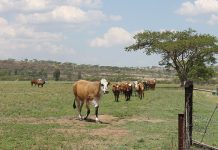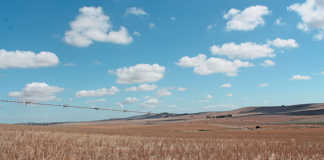There is very little to smile about when looking at the present state of the SA economy, which narrowly escaped sliding into a technical recession with a GDP growth rate of 0,7% for the third quarter of 2015.
Worried and weary South Africans who are watching their crops and animals wither away in the drought, who cannot afford the latest interest rate hike or feed their families a healthy meal because of the current rate of food price inflation, and who cannot find jobs because growth in the local economy has basically come to a standstill, didn’t get the joke.
During the question-and-answer session an MP complained to Speaker Baleka Mbete that Zuma did not take MPs or their questions seriously. Zuma responded by saying that he had no control over his laughter.
We can add that to the list of things the president doesn’t seem to have control over. He had no control over the R250 million spent on ‘security’ upgrades to his Nkandla homestead, nor had he any control over the decision to purchase a brand- new presidential jet that will cost South Africa
R4 billion. How many other things can’t he control?
Turning to Twitter, South Africans responded to Zuma’s laughter by speculating on the many #ThingsZumaLaughsAt, including: the Constitution, the GDP, the education system, supply chain policies, the justice system, the strength of the rand, SA visa requirements, water shortages, a corruption-free South Africa, the public protector, a transparent, responsive and accountable government, 783 charges of corruption, and SA taxpayers.
Not understanding the #drought and the affect it will have on the country #ThingsZumaLaughsAt
— Annette Steyn (@AnnetteSteyn1) November 19, 2015
Between sardonic chuckles, Zuma asked opposition MPs: “Where does my laughter hurt you?”
This is where it hurts: I recently met three female farmers from Limpopo who are facing ruin. Their crops have failed due to the drought, and they cannot pay back production loans that they took out earlier this year. Without a crop, these women, who farm on communal land, have no way of taking care of their families or providing for next year’s crop.
They each employ about five workers, and these people and their families will also suffer. Having received a negligible amount of support from the state, these women would never have been able to farm in the first place if not for the help they received from the private sector and NGOs.
Meanwhile, MEC for Agriculture in Limpopo Joy Matshoge recently received 51 Nguni cattle worth about R1 million from the provincial government, which she can keep on her farm leased from the Department of Rural Development and Land Reform.
I assume that like Zuma, she too had no control over receiving these benefits. Hehehe!
Denene Erasmus is the deputy editor of Farmer’s Weekly.













